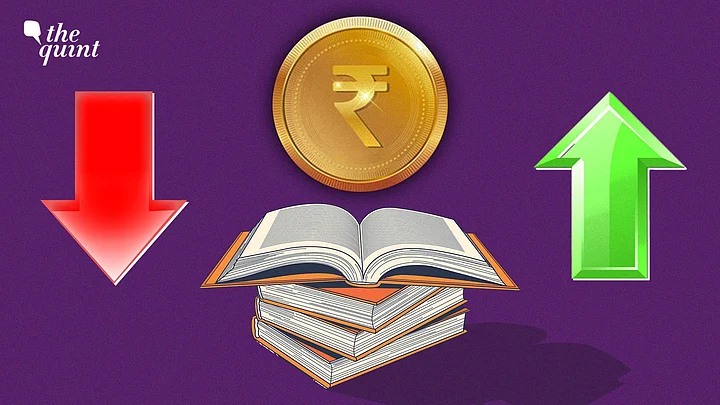Today, India has achieved near-universal enrollment at the primary level which means that almost every child under the age of ten is enrolled in a school. This is commendable, considering this demographic consists of around 12 crore children studying in fifth standard or lower grades. However, the recently released Annual Status of Education Report (ASER) 2022 indicates that only 20 per cent of the children in Grade III are able to read a basic Grade II text. For basic math, this number increases slightly to 25 per cent.
These numbers are lower than the corresponding numbers in ASER 2018, wherein 27 percent of Grade III Children were able to read a simple Grade II text, and for basic math, this number was a mere 20 per cent. This indicates that the learning loss was not just pandemic-induced, but was a problem even before it.
The New Education Policy (NEP) which was inaugurated in 2020 also identified Foundational Literacy and Numeracy (FLN) as a critical prerequisite for schooling and education thereby, making it an “urgent national mission” and paving the way for NIPUN Bharat Mission (National Initiative for Proficiency in Reading with Understanding and Numeracy) which was launched in 2021.
Given the strength in numbers and its impact on the future of the country, it becomes imperative to invest in FLN skills as that would benefit a large number of children, including the girl child, children from economically weaker families, children from marginalised communities, and specially-abled children.
Budget for Education: Numbers and Beyond
The Education Budget has increased significantly in the past few years, with an allocation of Rs 1.12 lakh crore in 2023-24. However, overall investment in education decreased from 3.1 per cent of the GDP in 2014 to 2.9 per cent of the GDP in 2023, which is contradictory to the aspiration of NEP 2020, which envisions an expenditure in education equivalent to 6 per cent of India’s GDP. This comes at a time when the contribution of education and health cess as a percentage of total outlay has increased from 28 percent (FY23 BE) to 34 percent (FY24 BE).
The Samagra Shiksha Abhiyan (SSA), which is the flagship initiative for education in India, forms the largest component of the overall education budget at 33.17 per cent. Schemes such as NIPUN Bharat are a component of the SSA. However, the proportion of the SSA in the whole budget has more or less remained unchanged at around 30-35 percent and the budgets allocated for the SSA have not been rising at the same pace as the overall budget.
Further, the allocations have been much lower than the estimates projected by the Ministry of Education and the Cabinet Committee on Economic Affairs. For instance, in 2022-23, the allocations for School Education were 17 per cent lower than the Ministry’s projected estimates.
Expenditure breakdown of the SSA budget 2022-23 reveals that only 27 percent of the allocations were made towards ‘quality interventions’ which includes the allocation for the NIPUN Bharat Mission, but this allocation is clubbed with initiatives under EdTech, Learning Assessments, academic support through Block and Cluster Resource Centres (BRC and CRC), etc. In addition, no allocation was made to the adult foundational learning scheme, Padhna Likhna Abhiyan (PLA) second year in a row.
The Need for Change Through Central Intervention
It is evident that India needs a long-term plan for foundational learning, complemented by an effective financing system, to sustain the enrollment rate which is currently 98.4 per cent at the primary level but drops to 79.6 at the per cent secondary level and further falls drastically to 57.1 per cent at the higher secondary level.
Improving this requires strategic and sustainable interventions at the foundational stage as children are not transitioning from primary school to high school at the expected rate due to their low level of FLN skills. NIPUN is a much-needed intervention, but its success will require enhanced investment in numerous interventions such as developing contemporary classroom material, teacher training and awareness, and leveraging technology to reduce administrative costs.
An all-encompassing mission of this manner can only succeed when backed by political will and coordination at all levels of implementation. Since education is on the concurrent list, increased central funds can only lead the way for increased state-specific FLN allocations, incentives, and strategies such as capacity building & qualitative development of foundational stage teachers, creation of FLN materials, and building awareness around the campaign and its importance.
It would be prudent to make foundational learning a dedicated component of the Samagra Shiksha Allocations to supplement the National Mission on Foundational Learning. FLN is one of the key pillars of India’s G20 Education Working Group. It is, therefore, an ideal time to cement India’s commitment to foundational education of our future generations. Allocating a specific budget for NIPUN and Foundational Learning, accompanied by effective implementation and utilisation, can ensure the success of NIPUN Bharat and lay the ground for a highly skilled, educated, and talented workforce to lead India in the coming days.
(Dr Amar Patnaik is a Member of Parliament, Rajya Sabha from Odisha; a former CAG bureaucrat, an academic with a PhD in management and an advocate now. This is an opinion piece and the views expressed above are the author’s own. The Quint neither endorses, nor is responsible for them.)
